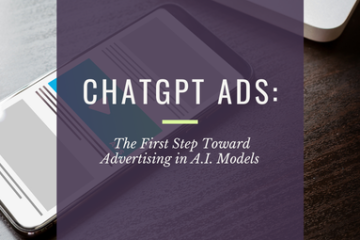
The Five Most Key Takeaways from This Blog
- There had been plenty of indications that OpenAI, the creator of ChatGPT, had been working on a search engine. But that indication is now a confirmation thanks to a recent announcement by OpenAI introducing SearchGPT.
- The name of the search engine? SearchGPT, currently in its SearchGPT Prototype phase. OpenAI’s intent is to integrate SearchGPT’s features directly into ChatGPT, so that the chatbot will actually feel like it contains a search engine within itself, in a way.
- As of this writing, access to the search engine is exclusive to a small number of users, as well as publishers that inked deals with OpenAI to create the platform. Reuters is one such publisher, which is why you will see its content in OpenAI’s marketing campaigns for SearchGPT.
- An idea central to this search engine is to cut down on the amount of time searchers need to spend to get to the answer, content, or, yes, product or service they are searching for. In other words, it seeks to get us closer to the Internet’s original promise of truly instant access to information.
- For business owners, one of the most significant aspects of this search-engine A.I. is that it may cause profound changes to how Internet users search for products and services online. Specifically, S.E.O. will likely become much more competitive as less of the sifting through links on a S.E.R.P. is a manual task for the user.
The Next Step in the Evolution of Search: Faster, More Convenient Results
In our Key Takeaways section above, the writer of this article was being only half-serious when writing that the Internet’s original promise was “truly instant” delivery of information to your sensory organs with the mere taps of your fingertips on the keyboard, or however you do your searching.
But this idea that literally instant delivery of info is a thing that we should all be valuing as a worthy pursuit of the tech industry, is an idea that A.I. companies are reviving in much of its marketing of the tech industry’s emerging A.I. products.
Just take as a e.g. a sampling from the copy that is to be found in SearchGPT’s announcement blog on the OpenAI website: “Getting answers on the web can take a lot of effort, often requiring multiple attempts to get relevant results.”
The key phrase here is “a lot of effort”. Be sure of it, as A.I. continues to develop, we will be seeing more and more sales pitches of this sort. Meaning, the kind that paints our normal everyday tasks and activities as wearying burdens that we should be grateful for A.I. coming in and automating, either in part or in full, to expedite multiple processes of our lives.
So obviously this will affect the Internet usage of the individual. But how will that change in turn affect the ways that business owners will be able to effectively operate online?
The Impact of A.I. Search on Business Owners
Worth mentioning is that SearchGPT is not one of a kind. Google in particular is working revamp its entire search engine with the inclusion of A.I. A recent result of this was the trial run of A.I. Overviews, which caused enough controversy that Google shut down its public product testing.
What was seen in that preview seems to be what OpenAI is going for: turning search into an experience that feels more like a one-on-one conversation with a research librarian who answers your questions outright. This contrasts the current state of online search, which feels more like asking a largely silent research librarian a question and getting a series of recommendations for research materials in return.
For business owners, this change means that users will be less likely to sift through the many different alternative sources for answering a question. So, they may be less likely to light on your blog post, or landing page, or YouTube video, unless that content happens to find its way into the mouth of the chatbot search engine.
That means that S.E.O. will become even more competitive than usual. Also, expect to have to invest more in online advertising, which some of the tech companies developing these search engines will certainly appreciate as a consequence.
Right now, no one can really say just what it will take to rank well in the chatbot search engines. The technology is still largely in development, so we will need to see its worldwide implementation before we can really divine its ranking tendencies.
Also, this writer should mention that not all search engines will feel exclusively like a chatbot, but instead a hybrid with a chatbot above the usual S.E.R.P., which means that there still will be a decent chance a scrolling user finds your site.





